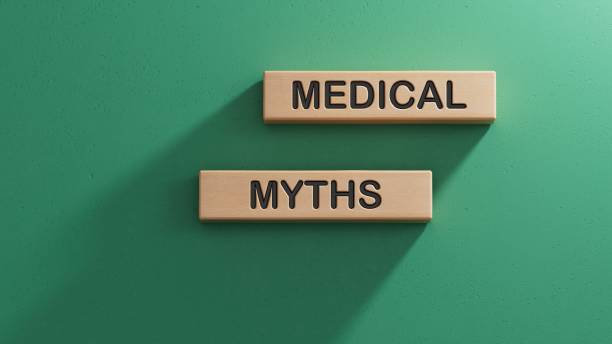Health myths have been passed down through generations, and in the age of the internet, misinformation spreads faster than ever. These myths can affect your daily life, your habits, and even your well-being. It’s important to separate fact from fiction when it comes to health advice, as believing in myths can sometimes do more harm than good.
In this comprehensive article, we will debunk the most common health myths and provide evidence-based facts to help you make informed decisions. By the end of this article, you will be better equipped to recognize and stop believing these myths that have long been ingrained in popular culture.
The Myth: You Should Drink 8 Glasses of Water a Day
Many of us have heard the recommendation to drink at least eight glasses of water a day. While staying hydrated is crucial for overall health, the amount of water a person needs can vary based on individual factors like age, activity level, and climate. There’s no one-size-fits-all answer.
Why It’s a Myth
The “8 glasses a day” rule comes from general recommendations, but research shows that hydration needs vary widely between individuals. For example, if you’re active, pregnant, or breastfeeding, you might need more fluids. Likewise, foods such as fruits and vegetables contribute to hydration.
The Myth: Eating Fat Makes You Fat
For decades, the idea that eating fat leads to weight gain has been a prominent health myth. Low-fat diets were once recommended for everyone, but this oversimplified approach has been challenged by modern nutrition science.
Why It’s a Myth
Not all fats are created equal. Healthy fats, such as those found in avocados, nuts, and olive oil, are essential for brain function, hormone production, and cell health. Studies show that consuming healthy fats can support weight loss when included in a balanced diet. The key is moderation and choosing the right types of fat, like unsaturated fats.
The Myth: You Should Avoid All Carbs to Lose Weight
In recent years, low-carb diets like keto and paleo have gained popularity. As a result, many people believe that cutting out carbs is the best way to lose weight. However, this is a myth that can have long-term health consequences if not followed properly.
Why It’s a Myth
Carbohydrates are the body’s primary source of energy. Whole grains, fruits, and vegetables are rich in complex carbohydrates that provide essential nutrients and fiber. Cutting out all carbs can lead to nutrient deficiencies and reduced energy levels. Instead of eliminating carbs entirely, focus on choosing whole, unprocessed sources like oats, quinoa, and sweet potatoes.
The Myth: You Can Spot-Reduce Fat from Specific Areas of Your Body
One of the most persistent fitness myths is that you can target fat loss in specific areas of your body, such as the belly or thighs. This belief is often promoted through exercises that promise to tone certain areas.
Why It’s a Myth
Spot-reduction is not possible. When you lose weight, your body reduces fat from all areas, not just the targeted region. Genetics play a role in where fat is stored and lost first. The best way to lose fat is through a combination of overall body exercise, strength training, and a healthy diet.
The Myth: Eating Late at Night Causes Weight Gain
It’s often said that eating late at night leads to weight gain, especially when you snack before bed. This myth has been popularized by numerous diet plans that suggest you should avoid eating after a certain hour.
Why It’s a Myth
The timing of your meals does not directly affect weight gain. What matters most is your total calorie intake throughout the day, along with the quality of food you consume. Late-night eating becomes problematic if it leads to overeating or consuming high-calorie, unhealthy foods. The key is balance and moderation, not when you eat.
The Myth: Skipping Meals Helps You Lose Weight
Many people believe that skipping meals is an effective way to cut calories and lose weight. While it may sound like a good strategy, skipping meals can backfire and hinder your weight loss goals.
Why It’s a Myth
Skipping meals can lead to overeating later in the day and disrupt your metabolism. Your body may enter “starvation mode,” slowing down metabolism to conserve energy. Instead of skipping meals, focus on smaller, balanced meals throughout the day to maintain steady energy levels and curb hunger.
The Myth: All Detox Diets Are Healthy
Detox diets and cleanses have become a popular trend, with claims of flushing toxins from the body and aiding in weight loss. Many of these programs promise quick results but are often unsustainable and unhealthy.
Why It’s a Myth
Your body has natural detoxification systems, mainly the liver, kidneys, and digestive system, which work efficiently without the need for expensive detox programs. Detox diets often deprive your body of essential nutrients and may lead to unhealthy side effects like fatigue and digestive issues. Instead of relying on detox programs, focus on a balanced diet with plenty of fruits, vegetables, and hydration to support your body’s natural detox processes.
The Myth: If You’re Not Sweating, You’re Not Working Out Hard Enough
Many people believe that sweating is the ultimate indicator of a good workout. It’s often seen as proof that you’re burning calories and getting the results you want.
Why It’s a Myth
While sweating can be a sign that your body is working hard to regulate temperature, it’s not the only measure of workout intensity or effectiveness. Some people sweat more than others due to genetic factors, environmental conditions, or fitness level. It’s important to focus on how your body feels and the consistency of your workout routine rather than relying on sweat as the sole indicator of a good workout.
The Myth: Natural or Herbal Supplements Are Always Safe
Herbal and natural supplements are often marketed as a safer, more natural alternative to pharmaceuticals. However, this doesn’t mean they’re always harmless or without side effects.
Why It’s a Myth
Just because something is “natural” doesn’t automatically make it safe. Many herbs and supplements can interact with medications or cause side effects. It’s important to consult with a healthcare provider before taking any supplements, especially if you’re already on prescription medications or have underlying health conditions.






